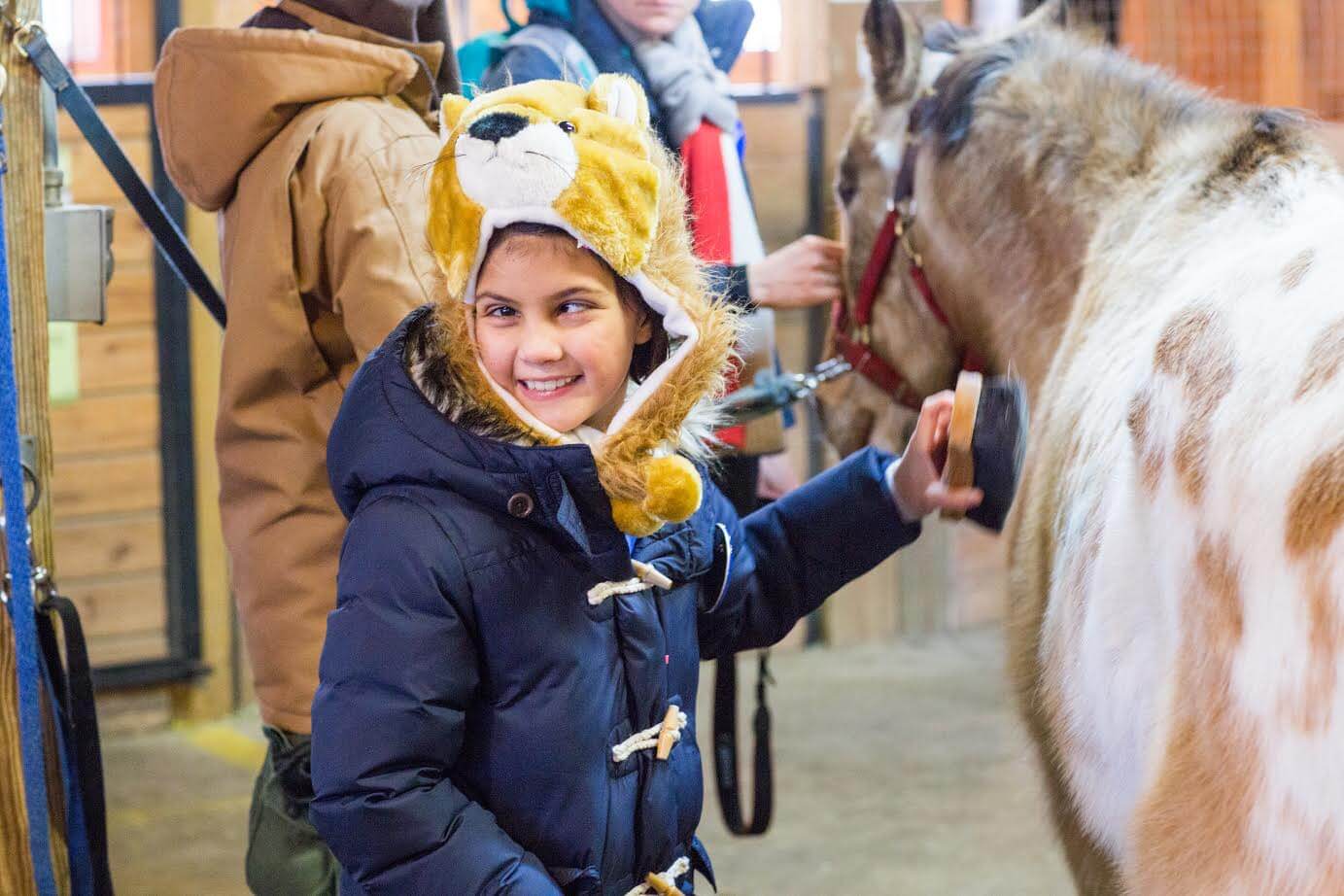This post originally appeared on Thriving, Boston Children Hospital’s pediatric health blog.
Our daughter Sajni Chakrabarti was only 7 and a half years old when she was diagnosed with a very aggressive form of brain cancer—diffuse intrinsic pontine glioma (DIPG)—and given only nine months to live.
Sajni loved life and learning. She spoke French fluently, played the violin and read avidly. And after she became sick, even as she struggled and was sad, she kept her bright-eyed glow and laughter all the way through. She still aimed to change the world, even writing a letter to the White House on climate change.
Sajni survived 19 months after diagnosis and enjoyed her life until the very end; she swam, rode horses, practiced karate, laughed with her sister, Anandi, and her friends. She went to school almost every day despite the growing disabilities that her tumor caused. She endured all of it with grace, courage and determination and she continues to inspire all those who knew her.

It’s a painful blur to recall all the things we did to try to save her—over 100 appointments to Boston Children’s Hospital and the Dana-Farber/Boston Children’s Cancer and Blood Disorders Center, ten trips to England for an experimental and innovative treatment, two surgeries and a personalized vaccine.
As she entered hospice care in our home, she chuckled while watching videos. We read many stories to her, trying to transport her to experiences beyond her failing body. One of her favorite stories was the Phantom Tollbooth. One passage in particular captures her shimmering specialness, suggests the terrible maladaptive growth of her disease and expresses her resilient vitality by which she rose far, far above.
In “The Phantom Tollbooth,” Milo leaves his bedroom to explore a world of imagination and perspective. Walking in a forest, Milo meets a boy Alec, floating in air, one of a group of people who grow downward from their head:
“Does everyone grow the way you do?” puffed Milo when he had caught up.
“Almost everyone,” replied Alec, and then he stopped a moment and thought. “Now and then, though, someone does begin to grow differently. Instead of down, his feet grow up towards the sky. But we do our best to discourage awkward things like that.”
“What happens to them?” insisted Milo.
“Oddly enough, they often grow ten times the size of everyone else,” said Alec thoughtfully, “and I’ve heard that they walk among the stars.”
Sanji’s story and the efforts of Dr. Mariella Filbin (Dana-Farber/Boston Children’s and the Broad Institute) to find a treatment for DIPG made the front page of the Boston Sunday Globe. In Sajni’s memory, the nonprofit Lucy’s Love Bus opened the Sajni Center, a place for integrative therapy for children with cancer or serious illness.
